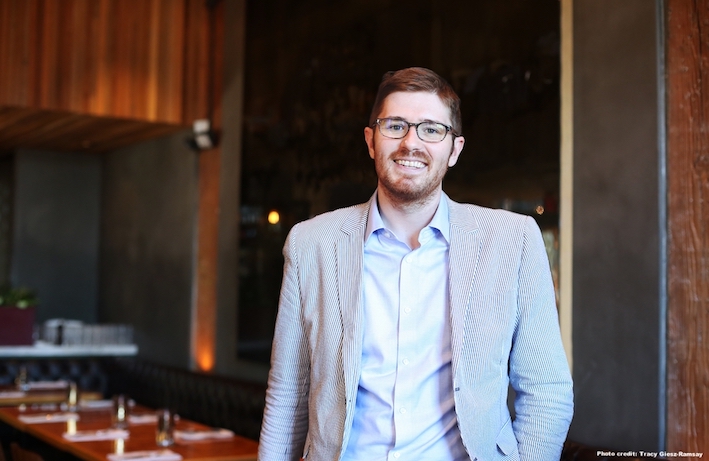
Why do we make bad political decisions, and how do we make better ones?
On Thursday, June 21, ScholCommLabber David Moscrop will unpack these questions and more on the TEDxYYC stage. Drawing from his own and others’ research, as well as from his personal experiences as a media commentator, he’ll examine the way our current democratic system functions—or, rather, dysfunctions—and how it could be improved in the future.
To give you a taste of what to expect, we chatted with Moscrop about his upcoming talk, the research that informed it, and the struggles of not swearing on live TV.
The theme of your upcoming TEDx talk is “Are we too dumb for democracy?” What got you interested in this topic?
Years ago I came across a book by the neuroscientist Antonio Damasio, who wrote that social scientists need to understand brain and behaviour to improve people’s lives. That was enough for me. I look at a lot of research and wonder what the point is. Maybe it’ll go somewhere, maybe it won’t. And I get why we need to support research wherever it may go, but I like to try to direct mine as much as I can towards producing something that will improve some bit of someone’s life. So, I wanted to know whether and how we could make decisions individually and collectively that empower people to get what they want based on rationality and autonomy rather than buried impulses and whatever they’ve been manipulated into thinking they wanted—whether by politicians or business interests or whomever.
You’re about to publish some very exciting research about political pundits and how—or perhaps whether—they share knowledge online. How will this work inform your talk?
Part of making a good political decision is having good, reliable information. And trustworthy information. Today, more than ever, there are a lot of false or misleading “facts” out there. A lot. So knowing that sometimes pundits rely on good academic information and share it with the public is encouraging, even if they don’t do it nearly often enough. I’ll be calling for more of that. The future of good political decision making is partly contingent on researchers being able to circulate their work. I’m slightly encouraged to see a new generation of publicly engaged scholars emerging. I hope to see more.
You’re an academic, but you’re also a journalist and a media commentator. How do you see your role(s) as a communicator?
I try to use my training to help give people some context for what’s going on and perhaps even some tools to think critically about who’s trying to get what and from whom. I also try to share research and amplify the work of others. So, basically, I’m a loudspeaker. I try to be accessible with my work and, to the extent that it’s possible, entertaining. You educate folks while also entertaining them if you have the guts to loosen your collar for a few minutes. It helps that I don’t care if I ever get a permanent academic job, because I can say whatever I want without too much concern.
“I try to be accessible with my work and, to the extent that it’s possible, entertaining. You educate folks while also entertaining them if you have the guts to loosen your collar for a few minutes.”
Do you consider yourself to be a political pundit?
For better or for worse, technically that’s what I am! It’s a fun gig. I get to share my thoughts with the world and get paid for it. Then I get criticized and even name-called by anonymous bozos, which always reveals something about the human condition. But best of all, the gig forces me to be clear and concise and real, which is something many academics could learn to do better.
Not that you asked, but for what it’s worth, the hardest part of the job is not swearing on live TV or radio. With the current state of things, I’m always a syllable away from saying something I’d regret.
What do you hope to leave TEDx audiences with?
Very simply: You can—or perhaps “You can”—make good political decisions, and it’s important that you do, since the future of democracy may depend upon it. Now, let’s have a good old chat about how individuals can get better at that, and how governments can and must support these efforts by offering opportunities for meaningful engagement that produce outcomes that matter.
David Moscrop’s talk takes place on Thursday, June 21, 2018. For more information, visit the TEDxYYC website.
